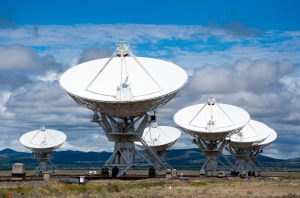Every year, when Time compiles its list of the “100 Most Influential People,” of the year, recipients are categorized as a Mogul, a Breakout, an Icon, a Pioneer, or a Leader. What is perplexing is that by categorizing them, there seems to be a degree mutual exclusivity. But does it hold that if a prominent scientist is categorized as a Pioneer, he is unable to be an Icon, a Breakout, or a Leader?
Is there something about the way that we define leadership that prevents us from viewing masterminds of scientific discoveries as leaders unless they found a company or run for election? Or is there a personality we expect a leader to embody, perhaps a way of dressing, communicating, and presenting ideas that we do not typically find from those individuals used to running experiments or publishing textbooks?
Certainly, it is unlikely that a leader of science would ever lead troops onto battlefield or run for public office, but don’t leaders of science perform many of the actions that effective business and political leaders do? Scientists create new and innovative ideas, work relentlessly at gathering support for them so that they can further their development, and when there is a breakthrough, they often shape the entire direction of an industry.
Scientists, such as Edward Jenner who invented the Smallpox vaccine, Robert Edwards who developed the process of in vitro fertilization, or Louis S. Goodman and Alfred Gilman who developed the basis of chemotherapy revolutionized the field of science and the magnitude of human health. Despite eradicating disease and changing the destiny of infertility and cancer, their names are probably not the first that spring to mind when thinking about “great leaders.”
If our modern concept of leadership is contingent upon the ability for an individual to portray a charismatic personality, communicate vocally, or run a company, then perhaps we ought to challenge how we define the concept, or else create an effort to equip these great scientific minds with the tools and techniques they need so that they too can be recognized as public leaders.
There does seem to be observable effort in the field of leadership training to target leaders of Science. A recent article in Seed magazine describes a group that provides additional training in communication and leadership for scientists by launching programs such as the Science and Public Leadership Fellows program. While many of the candidates of the program are already recognized as leaders in sciences and hold distinctions such as being MacArthur Award winners, NSF Career winners, and PECASE winners, the program focuses on trying to build their reputation as credible general public leaders.
There is promise that the emergence of similar programs can help us to increase public recognition of influential individuals who transformed society and were revolutionaries of a different type. If the individuals who invented the atomic bomb, created vaccinations, allowed test tube conceptions, and developed chemotherapy treatment are not publicly recognized, then we may be at fault for continuing to forget some of the world’s most powerful leaders.




